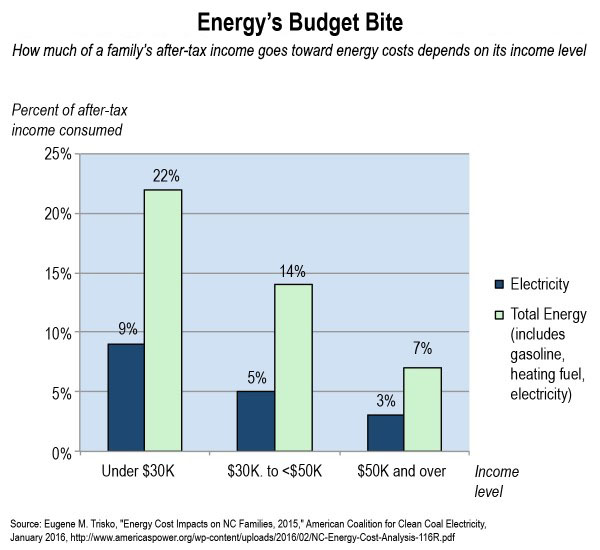A recent National Bureau of Economic Research working paper shows that higher heating bills costs lives. As stated in the abstract, economists Janjala Chirakijja, Seema Jayachandran, and Pinchuan Ong find that:
Exposure to cold is one reason that mortality peaks in winter, and a higher heating price increases exposure to cold by reducing heating use. It also raises energy bills, which could affect health by decreasing other health-promoting spending. Our empirical approach combines spatial variation in the energy source used for home heating and temporal variation in the national prices of natural gas versus electricity. We find that a lower heating price reduces winter mortality, driven mostly by cardiovascular and respiratory causes.
Keeping energy prices low is doubly important because energy is a basic human need, and as such, anything that raises its costs unnecessarily has a much bigger impact on poor families than on others. Remember who the top stakeholders in electricity prices are.

Having to direct a greater proportion of income to energy means having to reduce spending elsewhere, including on other things that promote good health, as the authors point out.
This is why least-cost, reliable electricity at the flip of the switch so important to people — and is the state’s legal standard.
‘Do I stay warm or eat?’
Think this doesn’t really relate to North Carolina? Then remember the relief felt by Eastern North Carolina electricity consumers when they received a long-needed rate cut:
“It costs me an arm and a leg – and somebody else’s body parts, too. It’s a lot,” said Shannon Taylor, an unemployed mother of three. “If I didn’t use any heat, my bill was still like $600 or $700. That’s like triple my rent.”
Retiree Gary Nevins, 72, pays $316 a month for electricity in his 1,000-square-foot apartment.
“Do I stay warm or eat?” Nevins said of the dilemma he often faced. “That’s a big choice.”
Eddie Hopkins, a veteran on disability, said his March bill was $849.
“Honestly, who uses that much electricity in a month’s time?” Hopkins asked. “All of us are not making the same mistakes. All of us are not intentionally running our light bills up.”


